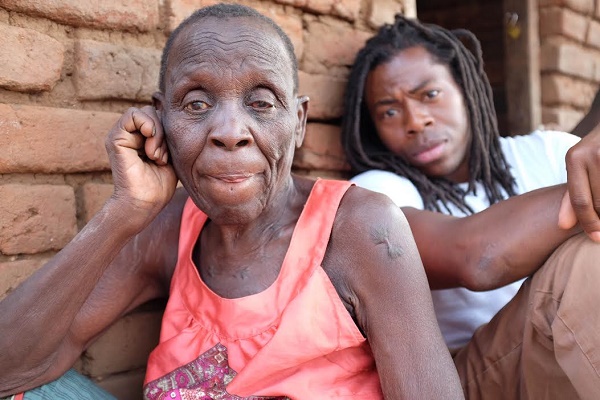
“Getting cataracts is as inevitable as getting grey hair. All of us will get it if we live long enough, the key is to catch it early.”
Dr Musukwe (paediatric eye surgeon Blantyre hospital Malawi)
In August, I flew to Malawi to make an Unreported World film about cataracts, Trachoma, and other debilitating eye conditions that are having a devastating impact on the countries rural population. Before this film I didn’t know much about Malawi. Within a few days what I discovered was a country with thousands of people living in villages trapped in poverty.
In rural Malawi tens of thousands are going blind unnecessarily because of a lack of resources. The countries health care system is struggling to cope even with the help of UK charity Sight Savers.
I met Emeressi Jassi, also known as Jess. She didn’t know her age, as there are no birth records for many villagers. I reckon she was in her late 70s, maybe even early 80s. She was blinded by cataracts in one eye but could see light and dark with the other. Rex Bawanusi, the specialist eye nurse that I travelled with, told me the sight in one of her eyes could be restored with a routine 15 minute operation to remove the cataract. The problem is Jess has no money and no way of getting to the hospital in Chikwawa, which is 30 miles away from her village. Without her sight Jess is unable to farm maize for food. She told me without help she would die a slow and lonely death.
As I’ve discovered over the years poverty comes in many different guises, but the overriding outcome apart from the obvious ones like malnutrition and disease is a demoralising lack of opportunities. Once it gets you in its suffocating tentacles it can feel like there’s no way out. When you throw disability into this horrendous mix you have a deadly potion that can crush the spirit of even the most optimistic person.
Watching Jess’s story unfold was one of the toughest periods in my short documentary-making career. People like Jess have no voice, they suffer in silence, but what really makes me angry is that a lot of their problems could be sorted with a simple operation that most of us take for granted. This was the first time in my life that I’d gone to a country where having eyesight had become a luxury.